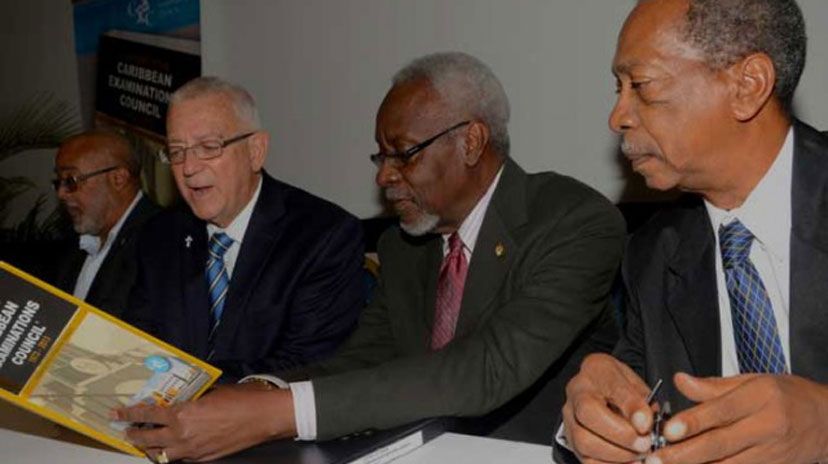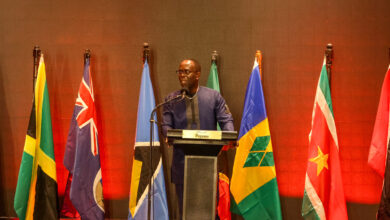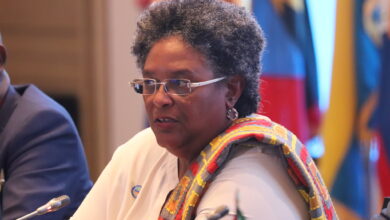KINGSTON, Jamaica, Dec.7, 2014 – The Caribbean Examinations Council (CXC) and other regional education stakeholders have been challenged to further restructure the curricula and tests for students to significantly enhance their ability to thoroughly analyze questions and problems, and come up with practical answers and solutions.
This charge came from former Prime Minister, the Most Hon. P.J. Patterson, as he delivered the keynote address at the recent launch of the publication: ‘A History of the Caribbean Examination Council, 1973-2013”, written by Historian and Professor Emeritus Patrick Bryan, at the Jamaica Pegasus Hotel, New Kingston.
Speaking on the theme: ‘Regional Relevance: International Credibility’, Mr. Patterson noted that “to promote the type of education that should be undertaken for contemporary society, it is suggested that examination questions be designed to determine abilities to understand, and use information in practical situations, to collate facts across disciplines, to find appropriate answers to real life problems, and reinterpret old questions in light of new facts.”
In this regard, he welcomed and endorsed the CXC’s School-Based Assessment (SBA) programme, which, he noted, is tailored to attaining these objectives.
“The…School-Based Assessment…affords the flexibility of teachers in the choice of assessment methods, it allows students to be subject to continuous diagnosis, and it also permits credits for class work assignment,” the former Prime Minister argued.
He also urged the CXC to support activities in the animation sector, among other creative engagements.
“Look at existing courses in order to package them better for the spread of the knowledge-based economy, and thereby contribute to the building of our creative and cultural industries as prime assets of the entire Caribbean. If we put, as we must, the development of our human capital resources at the top of our agenda for national growth and development, then, creativity of knowledge and information has to be at the core of our reality,” he contended.
In welcoming Professor Bryan’s publication, Mr. Patterson described it as a narrative of the “struggle for scholastic emancipation and to refute any notion that we are incapable of creating, in the region, something which is superior to anything which imposed from abroad”, and commended the author on a “brilliant work of scholarship.”






